Finding housing in NYC as a senior can be a nightmare. Back in 2013, the city published a paper describing affordable senior housing as “The Coming Crisis.” And it is. Senior Incomes have remained relatively constant, while the cost of living has gone up and especially the cost of housing which has skyrocketed. The point is, many seniors must choose between housing, food, medical care and prescriptions in a way that no one should.
But why not have senior housing that’s affordable? Why not have senior housing that’s economically operated, provides comfort, and promotes health and well-being to residents? Why not, in addition, have a lively Pre-K facility on the ground floor, fostering ongoing opportunities for mutually rewarding intergenerational exchanges, and offering seniors new and accessible ways to continue to contribute to society?
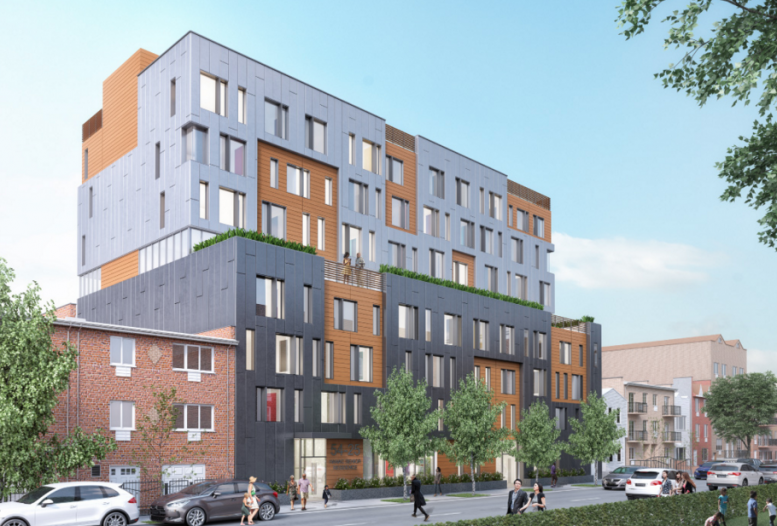
Image courtesy of Think! Architects
The HANAC Corona passive house project (click for more information) is one such realization of this concept. Through the vision of HANAC, one of the first affordable, multi-use, multifamily passive houses broke ground last Tuesday. The building features an all-insulated mat foundation, and continuously insulated and thermal bridge-free walls. Surprisingly, a Passive House in New York City with 68 dwelling units generates enough internal heat gains, that insulation values barely need to be increased above code requirements.
Continuous ventilation, along with a tight and well-insulated envelope will provide a healthier and more thermally comfortable indoor environment—aspects particularly crucial for senior housing. For the simplicity of operation, a distributed heat recovery ventilation is provided: one in every unit, and larger ones for common spaces and the education facility on the ground floor. The air barrier aimed at meeting the passive house air tightness requirement of 0.03cfm/square foot will ensure that energy savings are attained and comfort levels achieved. The apartments feature windows with R-7 insulation values, to maintain even surface temperatures and reduce condensation risks.
PHPP modeling was used to generate a projection of energy use in the building.

Heating demand for the residential part of the buildings, is projected to be only 2-3kbtu/sf-yr
We hope that this progressive design model, where costs were optimized to offer the most benefit to prospective tenants, can act as a prototype for more such projects. Not only seniors, but all people, deserve to live in homes that are healthy, comfortable and affordable.
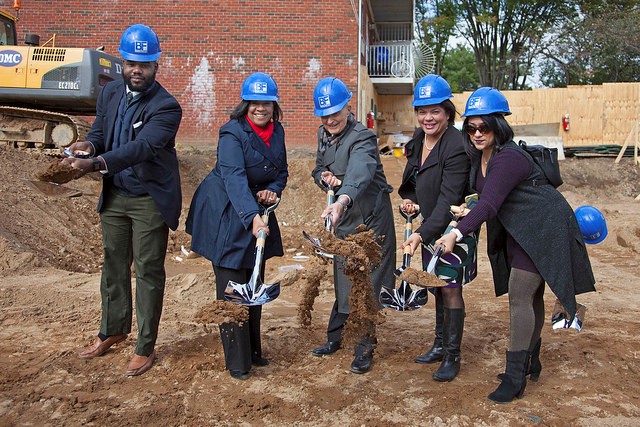
Image courtesy of Association for Energy Affordability Media Team
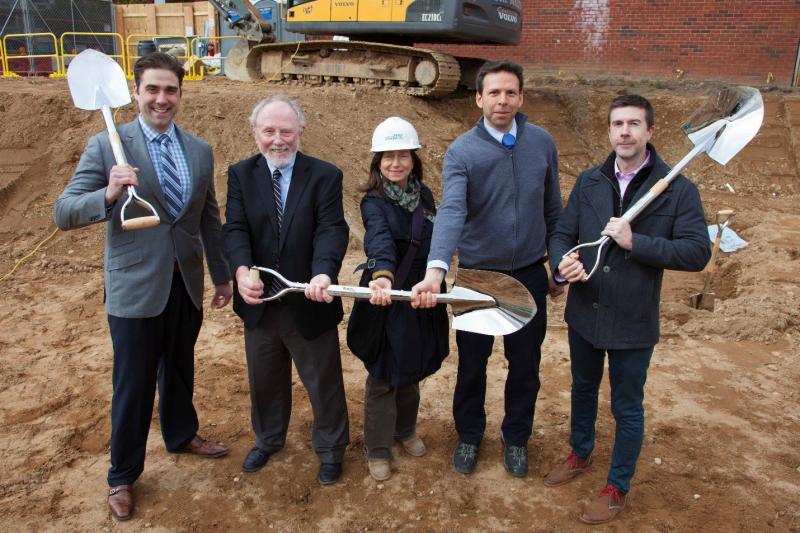
AEA team on the Project, from left Adam Romano director of training, David Hepinstall-Executive Director, Gina Buffone-Director of Construction and Gahl Spanier alongside Greg Duncan of Duncan Architects who provided PHPP modeling.
Our Mission
NESEA advances sustainability practices in the built environment by cultivating a cross-disciplinary community where practitioners are encouraged to share, collaborate and learn.

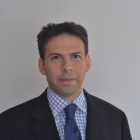
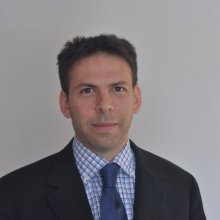



Add comment